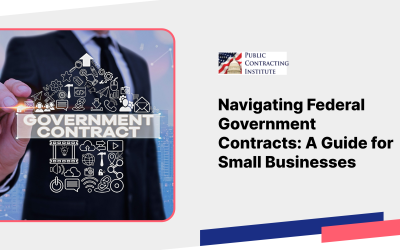When it comes to government contracting, choosing the right contract type is crucial for the success of your project. Two common contract types are Firm Fixed Price (FFP) and Cost-Reimbursement contracts. Let’s dive into the key differences between these two approaches and explore how to select the best fit for your government project.
Firm Fixed Price Contracts
In a Firm Fixed Price contract, the contractor agrees to deliver a specific product or service at a predetermined price. The key characteristics of FFP contracts include:
- Fixed price: The price remains constant, regardless of the actual costs incurred by the contractor.
- Risk allocation: The contractor assumes the majority of the risk, as they are responsible for delivering the project within the agreed-upon price.
- Incentive for efficiency: FFP contracts encourage contractors to be efficient and minimize costs to maximize their profit.
Cost-Reimbursement Contracts
Cost-Reimbursement contracts, on the other hand, involve the government reimbursing the contractor for allowable costs incurred during the project. The main features of Cost-Reimbursement contracts are:
- Variable price: The final price depends on the actual costs incurred by the contractor.
- Risk allocation: The government assumes more risk, as they are responsible for reimbursing allowable costs.
- Flexibility: Cost-Reimbursement contracts offer more flexibility to address changes in scope or requirements during the project.
Factors to Consider When Choosing a Contract Type
- Project complexity: FFP contracts are better suited for well-defined projects with minimal uncertainties, while Cost-Reimbursement contracts are more appropriate for complex projects with evolving requirements.
- Risk tolerance: Consider the risk appetite of both the government and the contractor. FFP contracts shift more risk to the contractor, while Cost-Reimbursement contracts distribute risk more evenly.
- Contractor’s experience: Assess the contractor’s experience and capabilities in handling the specific type of project. FFP contracts may be more suitable for experienced contractors with a proven track record.
- Budget constraints: Evaluate the available budget and the potential for cost overruns. FFP contracts provide more predictability in terms of costs, while Cost-Reimbursement contracts may be necessary when there are uncertainties in the project scope.
Best Practices for Successfully Implementing Your Chosen Contract Type
- Clearly define the project scope and requirements to minimize ambiguity and potential disputes.
- Establish open communication channels between the government and the contractor to address any issues promptly.
- Implement a robust monitoring and reporting system to track progress, costs, and performance.
- Regularly review and assess the effectiveness of the chosen contract type and make adjustments if necessary.
Resources for Further Learning
To deepen your understanding of Firm Fixed Price and Cost-Reimbursement contracts, consider exploring these valuable resources:
- Cost and Pricing Trends Series
- Government Contracting Fundamentals Series
- Pathways to Government Contracting Series
Conclusion
Selecting the appropriate contract type for your government project is a critical decision that can significantly impact its success. By understanding the key differences between Firm Fixed Price and Cost-Reimbursement contracts and considering factors such as project complexity, risk tolerance, and contractor experience, you can make an informed choice that aligns with your project’s goals and constraints.
Remember to implement best practices, maintain open communication, and regularly assess the effectiveness of your chosen contract type. By doing so, you’ll be well-positioned to successfully execute your government project and achieve the desired outcomes.
For more in-depth knowledge and practical guidance on government contracting, explore the wide range of courses, workshops, and resources offered by the Public Contracting Institute. With their expertise and commitment to education, you’ll be equipped with the tools and knowledge needed to navigate the complex world of government contracting successfully.








